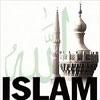Sheikh Ali Salman's Testimony at the Bahrain's High Court of Appeal

This is a translated Arabic transcript of the testimony delivered by the Secretary General of Al Wefaq National Islamic Society, Sheikh Ali Salman, at the High Court of Appeal on January 14, 2016:
In the name of Allah, the Entirely Merciful, the Especially Merciful.
O Allah, send your blessings upon Muhammad and his divine pure posterity and companions and their kindly followers until the Day of Judgment
(..I only intend reform as much as I am able. And my success is not but through Allah. Upon him I have relied, and to Him I return)
In 2001, the people of Bahrain voted on the transformation to a democratic constitutional monarchy, similar to the genuine constitutional monarchies in the world. The National Action Charter stated: “It has been determined to take the national, political, and constitutional constants in the identity of the State to emphasize the democratic constitutional hereditary monarchy.”salm
It also stated that “it has become suitable for Bahrain to take its position among the constitutional monarchies of democratic systems that achieve the people’s aspirations for development.’
It is clear that the “democratic constitutional monarchy” which the people of Bahrain voted for is not something ambiguous, but follows the examples of the known democratic constitutional monarchies in the world, particularly in Europe where “democratic constitutional monarchies” exist.
The axioms of the constitutional monarchies include (and here we discuss the concepts and the jurisdictions of the positions, without referring to individuals or personalities in any way):
Separating the family of the King from the governance. No “democratic constitutional monarchy” in the whole world combines the King and the governance in the same family.
Even in the monarchies which are not “democratic constitutional monarchies” as in Jordan and Morocco; the King and the governance are not from the same family.
The presence of the King and the governance in one family in Bahrain, is an obvious breach to the democratic constitutional monarchies we agreed on in the National Action Charter. I challenge the Public Prosecution Office to name a single constitutional monarchy where one family holds the post of the king and rules the country at the same time. Such a constitutional monarchy does not exist on earth.
Among the axioms of the constitutional monarchies is that the winning party in the elections forms the government. All democratic constitutional monarchies in Europe and the world abide by this principle. And that is what the Kingdom of Morocco did in 2012 in order to join the democratic constitutional monarchies in the world. Whereas in Bahrain, the King names and appoints the government, something that clearly contradicts with all the genuine and non-genuine democratic constitutional monarchies.
Also, among the axioms of the democratic constitutional monarchies is that the elected parliaments hold the legislative authority, either by one elected chamber or by 2 chambers where the final say is for the elected council as in the British political system. Bahrain, however, is the only country where the legislative authority (the parliament) is consisted of 2 equal chambers (each made up of 40 members), where one is elected and the other is appointed, i.e. the appointed council exercises a veto over the legislative resolution. Mr. Cherif Bassiouni1 mentioned this in his report, as he said in paragraph 49: (…Draft acts of parliament must be approved by the Consultative Council to pass into law, which means that the appointed chamber of the National Assembly exercises a de facto veto over the legislative process…) In addition, there isn’t any genuine democratic constitutional monarchy that allows issuing decrees with the force of law, if not rejected by majority of both councils; i.e. the rejection of 21 MPs of the Council of Representatives and 21 MPs of the Shura Council which is appointed by the King. 141 decrees, representing the most important laws, were issued in this way between 2002 and 2015. There is no democratic constitutional monarchy around the world where the King appoints half of the legislative authority and grants it equal legislative jurisdictions to that of the elected council.
Also, one of the constitutional monarchies axioms is that the distribution of the electoral districts is issued by a law from the parliament and not by a Royal Decree issued by the King, as in the case of Bahrain.
Among the constitutional monarchy axioms is the sovereignty of the law and the obedience of all the institutions and the elements of the State to political accountability; the obedience of all members -without exception- to the law and accountability. However, our Constitution forbids questioning the King because his self is inviolable in spite of all the executive powers he enjoys in his position. Furthermore, there is no way to question the Prime Minister although he holds the top executive position in the country. Also, a motion of confidence in a cabinet minister requires a majority of two thirds in the Council of Representatives, something usually impossible. The political process is practically disabled and the experience proved right this opinion.
By looking at the powers of the King in the Constitution of 2002, we will find ourselves facing an absolute monarchy, not a constitutional one. In the whole world, there is no genuine or non-genuine constitutional monarchy where the King possesses such jurisdictions.
Here are the jurisdictions of the king according to the 2002 constitution:
Chapter One
THE STATE
Article (1)
All rules of succession will be regulated under a Special Royal Decree, which will have force of the Constitution, and will not be altered except in accordance with the provisions of Article (120) of the Constitution.
Chapter Four
POWERS
GENERAL RULES
